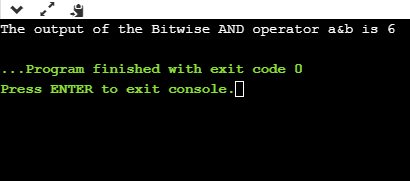C Data Types
In this tutorial, you will learn about basic data types such as int, float, char etc. in C programming.
In C programming, data types are declarations for variables. This determines the type and size of data associated with variables. For example,
int myVar;Here, myVar is a variable of int (integer) type. The size of int is 4 bytes.
Basic types
Here's a table containing commonly used types in C programming for quick access.
| Type | Size (bytes) | Format Specifier |
|---|---|---|
int | at least 2, usually 4 | %d, %i |
char | 1 | %c |
float | 4 | %f |
double | 8 | %lf |
short int | 2 usually | %hd |
unsigned int | at least 2, usually 4 | %u |
long int | at least 4, usually 8 | %ld, %li |
long long int | at least 8 | %lld, %lli |
unsigned long int | at least 4 | %lu |
unsigned long long int | at least 8 | %llu |
signed char | 1 | %c |
unsigned char | 1 | %c |
long double | at least 10, usually 12 or 16 | %Lf |
int
Integers are whole numbers that can have both zero, positive and negative values but no decimal values. For example, 0, -5, 10
We can use int for declaring an integer variable.
int id;Here, id is a variable of type integer.
You can declare multiple variables at once in C programming. For example,
int id, age;The size of int is usually 4 bytes (32 bits). And, it can take 232 distinct states from -2147483648 to 2147483647.
float and double
float and double are used to hold real numbers.
float salary;
double price;In C, floating-point numbers can also be represented in exponential. For example,
float normalizationFactor = 22.442e2;What's the difference between float and double?
The size of float (single precision float data type) is 4 bytes. And the size of double (double precision float data type) is 8 bytes.
char
Keyword char is used for declaring character type variables. For example,
char test = 'h';The size of the character variable is 1 byte.
void
void is an incomplete type. It means "nothing" or "no type". You can think of void as absent.
For example, if a function is not returning anything, its return type should be void.
Note that, you cannot create variables of void type.
short and long
If you need to use a large number, you can use a type specifier long. Here's how:
long a;
long long b;
long double c;Here variables a and b can store integer values. And, c can store a floating-point number.
If you are sure, only a small integer ([−32,767, +32,767] range) will be used, you can use short.
short d;
You can always check the size of a variable using the sizeof() operator.
#include <stdio.h>
int main() {
short a;
long b;
long long c;
long double d;
printf("size of short = %d bytes\n", sizeof(a));
printf("size of long = %d bytes\n", sizeof(b));
printf("size of long long = %d bytes\n", sizeof(c));
printf("size of long double= %d bytes\n", sizeof(d));
return 0;
}signed and unsigned
In C, signed and unsigned are type modifiers. You can alter the data storage of a data type by using them. For example,
unsigned int x;
int y;Here, the variable x can hold only zero and positive values because we have used the unsigned modifier.
Considering the size of int is 4 bytes, variable y can hold values from -231 to 231-1, whereas variable x can hold values from 0 to 232-1.





0 comments:
Post a Comment